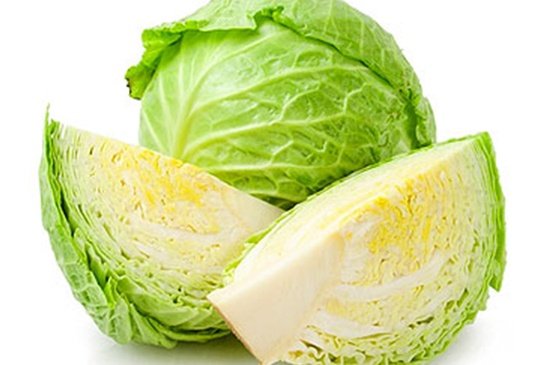Nutrition
Dietary management of rheumatoid arthritis

Green-cabbage
In this new chapter, we will be discussing how we can manage rheumatoid arthritis with our diet.
Rheumatoid arthritis (RA) is an autoimmune inflammatory disease of the joints. Autoimmune means that the body’s disease fighting system attacks the person’s own body cells.
The main cause is unknown. Rogue molecules cause the cartilage to break down, and the result is throbbing, warm, stiff, and swollen joints. Over time, it even exceeds the joints and damage the bones.
Rheumatoid arthritis is more common in women and has several features that makes it different from other kinds of arthritis. For example, a person with rheumatoid arthritis may feel tired, have occasional fevers, and generally not feel well. And unlike osteoarthritis, pain and stiffness is worse in the morning while pain and swelling of osteoarthritis is worse in the evening.
Management is mostly pain medications and immunosuppressant but the role of diet cannot be over looked.
Foods to include
Anthocyanin rich foods such as; red grapes, cranberries, cherries and cabbage.
Copper rich foods such as; crab, mushroom, spinach, and beans.
Omega-3 fatty acid rich foods such as; salmon, flaxseed, anchovies, and sardines.
Vitamin E rich foods such as; almonds, avocado, red bell peppers, and peanut butter.
Foods to avoid
Red meat such as; beef, mutton, and chevon.
Gluten containing products such as; wheat.
Refined carbohydrates and processed foods such as; pastries, certain cereals, and white rice.
Lifestyle modification
Modifying our lifestyle from a predominantly sedentary lifestyle to incorporating exercises like going for walks, jogging, and riding bicycles, as well as avoiding late-night high-calorie meals, excessive alcohol intake, and cigarette smoking will serve to prolong our healthy life and prevent rheumatoid arthritis from being our burden.
In conclusion, rheumatoid arthritis can be difficult to cope with psychologically, due to its autoimmune nature. But let us always remain steadfast with the simple ways of managing it; a balanced diet rich in anti-inflammatory nutrients, alongside regular exercise and healthy lifestyle choices, will help manage symptoms and reduce the impact of rheumatoid arthritis.
The writer Dr Bernice Korkor Asare is the CEO of Holistic Health Consult
“Your diet your health, your health your wealth”
E-mail: holistichealthconsultgh@gmail.com
Nutrition
The NHIS Opportunity: Leveraging Ghana’s uncapped health levy for nutrition services
Ghana’s decision to uncap the National Health Insurance Levy in 2025 marks an important shift in health financing. By removing limits on how much revenue the National Health Insurance Scheme (NHIS) can receive, government has created room to strengthen and expand essential health services.
This change comes at a crucial time for maternal and child nutrition, where effective solutions already exist but are yet to reach everyone who needs them.
Two such interventions are Ready-to-Use Therapeutic Food (RUTF) for children with severe acute malnutrition and Multiple Micronutrient Supplements (MMS) for pregnant women. Both are included in Ghana’s Essential Medicines List and Standard Treatment Guidelines, confirming their safety and effectiveness. Yet neither is currently covered under NHIS, leaving access dependent largely on donor-supported programmes.
The consequences are visible. An estimated 68,517 children in Ghana need treatment for severe acute malnutrition, but only about 15 per cent receive RUTF. For pregnant women, iron–folic acid supplements remain the standard, even though they address only two of the 15 essential micronutrients required during pregnancy. As a result, maternal anaemia remains widespread, affecting between 37 and 63 per cent of pregnant women depending on the trimester.
What makes this moment different is that Ghana already has the systems needed to deliver these services at scale. NHIS enrollment among mothers of children under five stands at about 84 per cent. National guidelines for the use of RUTF and MMS are finalised and in use, and more than 600 health workers have been trained on updated protocols. Supply chain structures are in place. The missing link has been sustainable, predictable financing.
Cost should not be a barrier. A full course of MMS costs about USD 2.50 per pregnancy and has been shown to reduce low birth weight by 12 per cent and preterm births by 11 per cent. This represents a small share of current spending on undernutrition. RUTF, while more resource-intensive, reduces the need for expensive hospital admissions by enabling effective community-based care, with recovery rates of 75 to 90 per cent. Ongoing Health Technology Assessments will provide Ghana-specific evidence to guide NHIS reimbursement decisions.
Including RUTF and MMS in the NHIS benefits package would change how nutrition services are delivered. Coverage would no longer depend on where donor programmes operate. Families would be protected from out-of-pocket costs, and services would be delivered as part of routine maternal and child healthcare. Importantly, data on coverage and outcomes would flow through national systems, strengthening monitoring, accountability, and planning.
Ghana has committed to achieving 80 per cent coverage of essential health services by 2030 under its Universal Health Coverage agenda. Nutrition is central to this goal, as it underpins child survival, maternal health, and long-term human development. The uncapping of the National Health Insurance Levy offers a rare chance to close long-standing nutrition financing gaps using domestic resources.
The opportunity is clear. The systems are ready. The evidence is established. What remains is a deliberate policy choice to use this expanded fiscal space to ensure that lifesaving nutrition services reach mothers and children across the country, consistently, equitably, and sustainably. The levy uncapping opens the door; leadership must walk through it.
Feature article by Women, Media and Change under its Nourish Ghana: Advocating for Increased Leadership to Combat Malnutrition project
Join our WhatsApp Channel now!
https://whatsapp.com/channel/0029VbBElzjInlqHhl1aTU27
Nutrition
Benefits of chocolate

Chocolate is made from tropical Theobroma cacao tree seeds. It has since become a popular food product that millions enjoy every day. It has a unique, rich, and sweet taste.
-Cholesterol
A researcher revealed that chocolate consumption help to reduce low density lipoprotein.
Regular consumption of chocolate bars with low-fat diet supports cardiovascular health by lowering cholesterol and improves blood pressure.
- Keeps brain healthy
Researchers have suggested that drinking two cups of hot chocolate a day could keep the brain healthy and reduce memory decline in older people.
The researchers found that hot chocolate helped improve blood flow to parts of the brain where it was needed.
- Heart disease
Consuming chocolate could help lower the risk of developing heart disease and also lower risk of cardiometabolic disorders.
-Stroke
Canadian scientists, in a study involving 44,489 individuals, found that people who ate one chocolate were 22 per cent less likely to experience a stroke than those who did not.
Also, those who had about two ounces of chocolate a week were 46 per cent less likely to die from a stroke.
-Fetal growth and development
Eating chocolate every day during pregnancy might benefit fetal growth and development, according to a study presented at the 2016 Pregnancy Meeting of the Society for Maternal-Fetal Medicine in Atlanta, GA.
The flavonoids in dark chocolate can stimulate the endothelium (lining of arteries) to produce nitric oxide (NO).
One of the functions of nitric oxide is to send signals to the arteries to relax, which lowers the resistance to blood flow and therefore reduces blood pressure.
Dark chocolate may also improve the function of your brain.
Studies show that eating high flavanol cocoa could help improve blood flow to the brain in young adults.
Cocoa flavonoids may also help maintain brain health and the ability to think in older adults with mild cognitive impairment and reduce the chance of progressing to dementia. But more research is needed.
-medicalnewstoday.com







